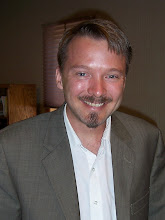‘An enormous phenomenon’
Scholar estimates that 2 million U.S. Christians travel abroad annually on short-term mission
by Pat Cole
LOUISVILLE — Short-term mission trips are “an enormous phenomenon" and "central to the ministry practices of a high proportion” of Christians in the United States, according to a seminary professor who studies the trend.
In a recent address to leaders of the Presbyterian Church (U.S.A.) mission networks, Robert Priest, professor of mission and intercultural studies at Trinity Evangelical Divinity School in Deerfield, IL, said it is likely that more than 2 million U.S. Christians travel abroad each year on short-term mission trips.
Participation in international mission trips is particularly high among younger people, he said. In a study of students in 60 U.S. seminaries, Priest found that 48 percent of seminarians had been on an international short-term mission trip and that 67 percent of PC(USA) seminarians had a short-term mission experience abroad. A survey of students in Christian liberal arts colleges revealed that 47 percent of them had traveled internationally on short-term mission trips.
A total of 44 leaders from 31 PC(USA) mission networks gathered in Louisville Sept. 25–27 to share best practices and participate in training opportunities. PC(USA) mission networks are composed of Presbyterians who come together around a particular country, region, or other mission interest.
Short-term mission experiences, Priest said, can potentially broaden the horizons of participants, deepen their faith, and contribute to the well-being of communities in developing countries.
However, such positive outcomes from these trips, which usually last fewer than 14 days, are not automatic. In fact, Priest noted, many participants fail to try to understand the cultures they visit, can cite little evidence of spiritual transformation as a result of their trips, and engage in giving practices that create unhealthy dependencies.
Nevertheless, in his research with pastors in Peru and Thailand, Priest has found that most pastors in those countries who worked with short-term groups had positive appraisals of them. On a trip to one Latin American city Priest witnessed a large short-term mission team help construct a Protestant church building and staff a medical clinic that offered a variety of services.
“I couldn’t find anybody in that town who thought it (the mission trip group) was anything but wonderful,” Priest said. The economically poor townspeople appreciated their services and saw that the host congregation had connections with affluent foreigners. Those relationships, he said, raised the esteem of the congregation in the predominately Catholic town.
However, many mission pastors and youth pastors acknowledge that the strategic contributions of short-term mission trips to overseas communities are of limited value, Priest said. They justify short-term mission, he explained, “in terms of how it positively benefits the sending congregation or youth program.”
As the short-term mission trips began to grow in popularity in the 1980s and 1990s, Priest said some leaders justified the trips by hoping the experience would nudge participants toward long-term mission service or make them more likely to support long-term mission personnel financially. Research has shown that has not been the case, he said.
“Today the results are clear that the explosion of short-term mission trips coincided with a plateauing and decline of career missions and that short-term mission expansion reflected a redirection of resources away from career missions rather than an increase in the amount given in support of career missions,” Priest said.
Priest, who has interviewed many short-term mission participants, said they experience spiritual transformation more often when they combine international service with work in economically poor communities near their homes. Some short-term mission participants have built relationships with recent immigrants from countries they visited on mission trips.
Yet a deepened involvement with economically poor people and lifestyle changes are not likely to happen “if you come from a church that doesn’t put justice issues front and center,” he said.
In his interviews with mission trip participants, Priest has found that many people struggle to identify ways they have changed as a result of their mission experience.
Priest recounted the story of one short-term mission trip participant who was eager to be interviewed about his experience. When questioned how he had changed as a result of the trip, the man could only say that he is now a more grateful person.
“Is gratefulness an adequate response to human need?” Priest asked.
Howard's Sermons and Article Clippings.

Blog Archive
-
▼
2008
(75)
-
▼
October
(8)
- Guder challenges church leaders to help define, fu...
- Giving What is Due
- World Alliance of Reformed Churches:Letter from Accra
- Doing good, doing better: Short-term mission more ...
- Following Jesus in America
- Scholar estimates that 2 million U.S. Christians t...
- Bearing the Fruits of the Kingdom
- Death row Realism
-
▼
October
(8)
About Me

- Howard
- Im a Mainline protestant minister who loves serving in multicultural and urban contexts. I'm very interested in how liberation theology and existential-humanistic psychology are applied to the praxis of pastoral care and counseling. My most profound encounters with God come as we sojourn as brothers and sisters seeking the inbreaking of God's reign, here and now.
Subscribe to:
Post Comments (Atom)









No comments:
Post a Comment